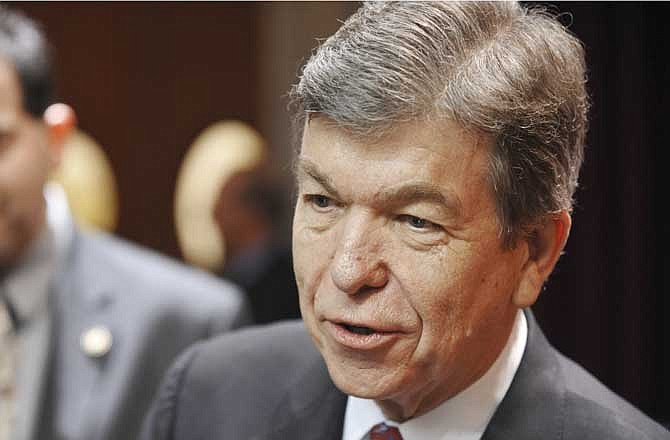U.S. Sens. Roy Blunt, R-Mo., and Debbie Stabenow, D-Mich., marked a 50th anniversary Thursday by urging their colleagues to improve the nation's care for its mentally ill citizens.
President John F. Kennedy signed the "Community Mental Health Act of 1963" on Oct. 31, 1963 - just three weeks before his assassination.
Part of Kennedy's "New Frontier" proposals, the law created community mental health centers throughout the nation and was seen by many as a key part of moving mentally ill people from warehousing in institutions back to individual lives and treatment in their communities.
"And not a whole lot's been done since then, frankly," Blunt told Missouri reporters during a telephone conference call Thursday morning.
Mental health, he added, is "an issue that, for whatever reason, the government's been reluctant to deal with. And when it has been dealt with, it's made it harder for people in families who were responsible for somebody with a mental health problem to find out information.
"It's made it harder for a mom or dad or somebody paying the bills to have the ability to get access to health reports - and it's made it harder for someone who was ordered by a court to have certain treatments to be forced to have those treatments."
Last February, Blunt and Stabenow introduced their "Excellence in Mental Health Act" that, he said, "really focuses on expanding the Federally Qualified Community Health Centers (FQHCs) to where they can also, at their option, add behavioral health as one of the things that people can have there - under the same conditions, the same pay procedures (and) the same standards that those well-run community health centers now have."
He noted Missouri already is a leader in providing some of those services at FQHCs.
"This is a moment when Congress could do this," Blunt said.
As he has in other recent visits with reporters, Blunt said recent tragedies have focused the nation's attention on the need for better mental health care.
"You know, people with mental health problems are more likely to be the victim of a crime than the perpetrator of a crime," he said. "But the one consistent thing with all of these tragedies - at the Navy Yard, recently; at the (Aurora, Colo.) movie theater; at the college campus; at a grocery store; at an elementary school - was that every one of these people had a mental health issue that hadn't been dealt with.
"And I've been trying to convince my colleagues, and the White House, that this is a moment where we could come together and do something about this part of the problem."
Blunt said he and Stabenow already have gotten support from "every veterans group that we've asked to look at this (and) the mental health community."
He also is promoting a couple of other bills that should make mental health care easier to provide in the country, including a measure known as "mental health first aid," which, he said, is "just like a weekend training for people who deal particularly with young people - not to become the givers of mental health assistance, but to get a chance to recognize somebody you're in contact with who needs some help and, hopefully, you can create a mental health intervention as quickly as possible."

